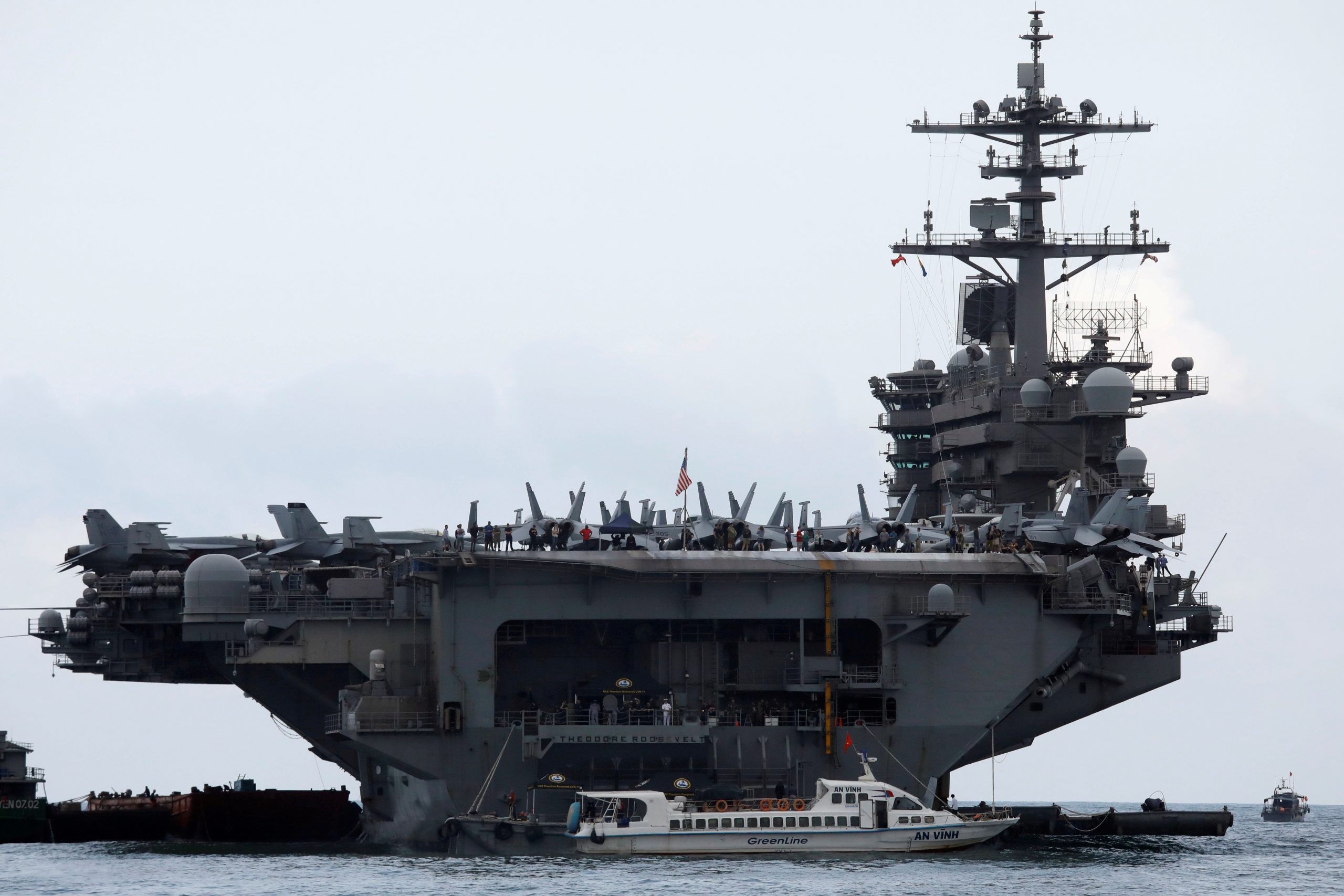About 1,000 sailors from the aircraft carrier USS Theodore Roosevelt – roughly a fifth of its crew – were under quarantine at a U.S. naval base on Guam on Thursday as the Navy sought to control a coronavirus outbreak aboard the warship.
The evacuation of sailors from the vessel began on Wednesday, a week after the first coronavirus case was reported on the aircraft carrier, and followed public disclosure of a scathing letter to Navy command from the ship’s captain urging “decisive action” to control the outbreak.
In his four-page letter, the contents of which were confirmed by U.S. officials to Reuters on Tuesday, Captain Brett Crozier described a bleak situation aboard the nuclear-powered carrier as more sailors tested positive for the virus.
The letter put the Pentagon on the defensive about whether it was doing enough to keep the Theodore Roosevelt’s 5,000 crew members safe, and alarmed the families of those aboard the vessel, whose home port is in San Diego.
In the letter, the captain called for more than 4,000 sailors to be removed from the ship and isolated, saying the Navy otherwise would be failing to properly safeguard “our most trusted asset – our sailors.”
Acting U.S. Navy Secretary Thomas Modly said he disagreed with the captain’s assertion that all but 10 percent of the ship’s crew could be removed from the vessel if necessary.
“This ship has weapons on it. It has munitions on it… It requires a certain number of people on that ship to maintain the safety and security of the ship,” Modly said.
Asked whether the captain would face discipline for the letter, he said: “The fact that he wrote the letter up to his chain of command to express his concerns would absolutely not result in any type of retaliation.”
When questioned repeatedly over the leak, he said: “I don’t know who leaked the letter to the media. That would be something that would violate the principles of good order and discipline, if he were responsible for that. But I don’t know that.”
The carrier was in the Pacific when the outbreak started, and has since docked at the U.S. Naval Base Guam, on the southern end of the American island territory in the western Pacific.
HOTEL QUARANTINE ON GUAM
An initial group of 1,000 sailors were moved from the ship onto the base on Wednesday, with the Navy saying that 93 personnel had tested positive for the disease so far.
Those testing positive or showing flu-like symptoms were placed in isolation for treatment, while the rest were quarantined, the region’s U.S. Navy commander, Rear Admiral John Menoni, said during a news conference on the island on Thursday.
Those who remain asymptomatic and test negative will be transported to vacant hotel space about 8 miles away in Guam’s commercial Tumon district, where they will remain quarantined for two weeks, territorial Governor Lourdes Leon Guerrero told Reuters.
The quarantined sailors will be moved to hotel quarters in the next 12 to 24 hours in an operation that will be run entirely by the U.S. military, Menoni said.
The Navy said on Wednesday that 2,700 crew would ultimately be removed from the ship over the next few days.
Menoni insisted that the aircraft carrier, despite the outbreak, “is not incapacitated” and “could go to sea tomorrow if conditions required.”
The admiral said he was unaware of any discussions surrounding possible discipline of the ship’s captain, adding, “That’s not my role.”
Guam governor Leon Guerrero said some residents of the island, whose tourist-based economy has been devastated by the coronavirus pandemic, had been “pushing back” against welcoming the stricken aircraft carrier to shore.
But she was assured the sailors would be kept completely isolated from Guam’s population.
“These are our sailors who go out in harm’s way to protect our security in this part of the world,” she said. “I feel I have the moral obligation to reciprocate if I could.”
As of Thursday, Leon Guerrero said, Guam had 77 known cases of coronavirus, including three deaths.
(Reporting by Maureen Maratita in Hagatna, Guam; Additional reporting by Idrees Ali and Phil Stewart in Washington; Writing and additional reporting by Steve Gorman in Los Angeles; editing by Philippa Fletcher)

























 Continue with Google
Continue with Google